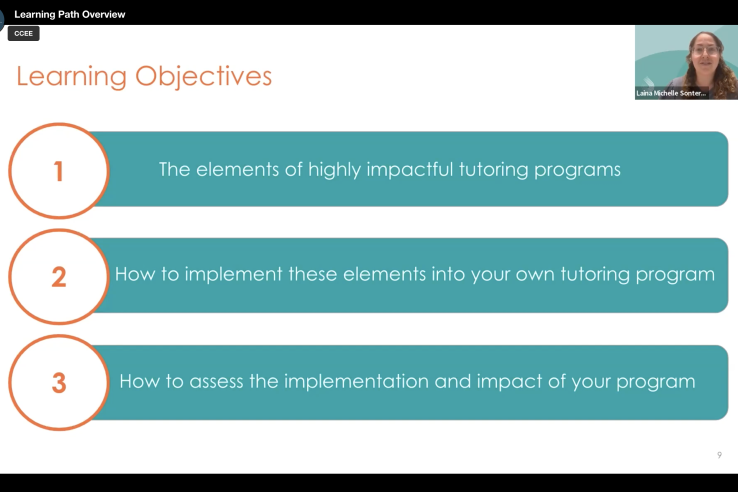November 2022 North America Newsletter

Good morning,
We know that economics, as a tool to improve policy, is at its most powerful when it includes everyone. Our work at J-PAL is better when it represents as many perspectives as possible, and we all miss out when it doesn’t. We wrote to you in July about the work we’re doing with partners through our Economics Transformation Project (ETP) to build a more diverse, equitable, and inclusive field of economics. We were recently reminded of why this work is so needed in economics: over the past two months, economists and students shared allegations of sexual harassment, assault, and discrimination against economists in positions of power. At J-PAL, harassment, bias, discrimination, and abuse have no place in our work environment and are not tolerated—we make this clear in J-PAL’s statement of conduct expectations for our research affiliates, staff, and members of the J-PAL community.
Sadly, such allegations are not new to the field of economics. The American Economic Association 2019 Climate Survey revealed disturbing evidence of harassment, assault, and gender and racial discrimination within the field. For example, about half of women who responded reported being treated unfairly because of their sex, compared with 3 percent of men. Close to 100 women reported that a colleague had sexually assaulted them.
While ETP seeks to address many structural barriers faced by underrepresented voices in the field of economics, including unequal access to skill-building opportunities, knowledge, and mentoring, where does the pipeline that we’re striving to build actually lead? More accessible and equitable pathways into economics, ideally leading to more realized diversity, only means something if we’re setting people up to be meaningfully included once they’re here. We must all cultivate an environment that empowers economists of all backgrounds to do their work, to be safe, to be valued, and to add to the quality and credibility of our field.
At J-PAL, we’re actively working to ensure all members of our community are welcomed, respected, supported, and valued. In J-PAL’s statement on conduct expectations, we outline the formal channels created to safely report and address incidents of bias, discrimination, and harassment. Internally, we are working to create an environment where everyone is treated according to our core values. We train our managers and leaders on inclusive management practices, conduct and assess the results of our own workplace climate survey, and seek new areas to learn, grow, train, and retrain staff to ensure a safe, inclusive, and productive workplace.
Within all of our programming—including the trainings, panels, and webinars we host—we build in practices and policies to promote inclusion, including the use of inclusive language. And, as we expand programs like ETP and design new programs aimed at increasing representation, we're thinking even more about how to train our trainers, ensure a safe and inclusive environment where people and their ideas are respected and valued, and reinforce feedback and reporting mechanisms to identify when things go wrong.
There is much work still to do. Looking forward, we are committed to continuing the work necessary to create more equitable pipelines into economics and to make the field itself a place that allows economists of all backgrounds to thrive.
Laura Feeney
Co-Executive Director, J-PAL North America
Discrimination, harassment, and abuse have no place in our work.
Read J-PAL’s full code of conduct for our community »
Creating a learning path for evidence-based tutoring implementation
J-PAL North America is working with public officials across the United States to spread the word on key components of effective tutoring programs. We recently partnered with the California Collaborative for Educational Excellence to create a learning path on Implementing Evidence-Based Tutoring for High Impact. The learning path includes a combination of short videos, clear resources, and interactive quizzes and graphics for education agencies and tutoring organizations. Across seven modules, users will learn about the elements of highly impactful tutoring programs, how to implement these elements, and how to assess the implementation and impact of these programs. The learning path draws from J-PAL North America’s 2020 meta-analysis of 96 tutoring programs. Learn more »
Affiliate Spotlight: Elizabeth Linos on understanding evidence use in government
We interviewed J-PAL affiliate Elizabeth Linos about her work to understand dynamics that affect the government workforce, improve service delivery, and map how evidence turns into policy. Linos discusses her most recent working paper, “Bottlenecks for Evidence Adoption ," which discusses why rigorous evidence does not always translate to policy implementation and how researchers can contribute to addressing such challenges. Read Elizabeth's interview »
FEATURED EVALUATION SUMMARY
Quantifying Racial Discrimination in Major US Housing Markets
Housing is a key factor in employment and educational opportunity, wealth accumulation, and economic mobility, and housing discrimination is linked to inequitable economic opportunity through these pathways. However, the extent of discrimination by landlords and property managers in the US rental market has historically been difficult to quantify. In this evaluation, researchers conducted a correspondence study assessing property managers’ responses to rental listing inquiries from prospective tenants with distinctively Black, Hispanic/Latinx, or white names. Property managers were significantly less likely to respond to messages from prospective Black or Hispanic/Latinx renters than white ones, with variation in discriminatory patterns across different cities.
Featured Research Resource
Communicating with a Partner about Results
Randomized evaluations require collaboration and communication between many stakeholders, including academic researchers, research staff, implementing partners, holders of administrative data, policymakers, and the community. These stakeholders have diverse viewpoints and specialized vocabularies, which can make collaboration difficult. Strong communication, leading to partner engagement, increases the chance of a smoothly run evaluation and its policy impact potential. This resource, which combines experience and guidance from numerous researchers and staff in implementing randomized evaluations, provides guidance for researchers on when and how to communicate with partners about results and progress measures of randomized evaluations.